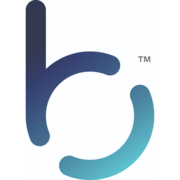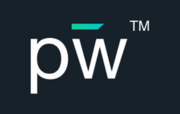
Best Talent Intelligence Tools and Solutions 2026
What Are Talent Intelligence Tools and Solutions? Talent Intelligence tools centralize and analyze talent data to inform HR decisions, particularly recruiting and hiring decisions. Talent intelligence tools heavily emphasize artificial intelligence mechanisms to proactively surface talent insights. These AI-based platforms quickly “learn” how to personalize and optimize intelligence to fit the business’s specific talent and recruiting needs. These tools are most often utilized by large or ...
We’ve collected videos, features, and capabilities below. Take me there.
All Products
Videos for Talent Intelligence
Learn More about Talent Intelligence Software
What Are Talent Intelligence Tools and Solutions?
Talent Intelligence tools centralize and analyze talent data to inform HR decisions, particularly recruiting and hiring decisions. Talent intelligence tools heavily emphasize artificial intelligence mechanisms to proactively surface talent insights. These AI-based platforms quickly “learn” how to personalize and optimize intelligence to fit the business’s specific talent and recruiting needs. These tools are most often utilized by large or global organizations, where cultural differences, language barriers, and other factors make talent data challenging to manually handle. Talent intelligence enables micro-level talent insights at scale for these enterprises.
Talent intelligence solutions leverage centralized talent data to automate many insights, pattern recognition, and reporting that is necessary to inform talent decisions. Internally, talent intelligence helps identify gaps in talent pools and candidate pipelines to help organizations preemptively fill gaps. TI tools can also automatically filter and shortlist candidates based on objective criteria. This level of automation can also operationalize DEI standards in early-stage recruitment processes.
Improved access to talent intelligence has a range of impacts on recruiting, talent management, and HR. For instance, a more informed hiring process can save costs from more efficient recruiting and improved long term retention. Talent intelligence can also give insights into the organization’s existing talent pool, and individual’s satisfaction, flight risk, and other talent metrics. These tools can also help mitigate recruitment bias by automatically filtering out biasing information early in the process. They can also track internal inclusion sentiment to inform internal DEI efforts.
Talent Intelligence Features & Capabilities
Talent intelligence solutions should have most or all of these core capabilities:
- Continuous AI model training
- Existing skills taxonomy/mapping
- Anonymous Screening/Profile Masking
- Bias-Mitigating Algorithms
- Diversity Reporting
- AI-Based Role Definition
- Candidate Modelling
- Talent Rediscovery
- Automated Candidate Evaluation
- Internal Mobility Recommendations
- At-Risk Talent Scoring
- ATS Integrations
Talent Intelligence Solutions vs. Talent Management Solutions
Talent intelligence tools integrate heavily with talent management systems. However, there are key distinctions between the two technologies. Talent intelligence focuses on analyzing talent data and serving actionable insights to HR specialists, recruiters, and managers. These personnel then perform talent management processes within talent management solutions based on those insights. Talent management systems support actual activities and planning structures, while talent intelligence is just an analytics function.
Talent management also handles some amount of data analysis and reporting, but the scope varies dramatically. Talent intelligence tools focus on micro-level, individual talent data. In contrast, talent management products utilize aggregate or macro-level data to make multi-person or organization decisions. Talent Intelligence is more focused on informing decisions around specific individuals, roles, or needs.
Talent Intelligence Tools Comparison
When comparing different talent intelligence tools, consider these factors:
- Recruiting Intelligence vs. Internal Talent Intelligence: Many talent intelligence solutions focus heavily on recruiting intelligence. However, some also provide more robust intelligence around internal talent, such as employee sentiment, inclusion data, and other talent metrics. Consider whether the organization also has a heavy need for internal talent intelligence in addition to recruiting intel.
- Competitive Intelligence: Some vendors also pull in industry benchmarks, competitor employee data, and other external datapoints. This data can provide additional insights for talent managers, but are not yet universally supported by TI tools.























